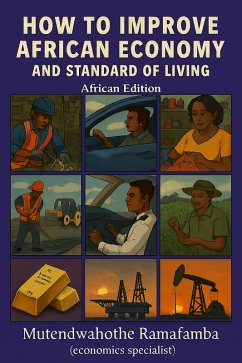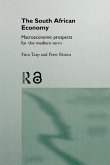A Continent of Promise and Challenges
Africa is a land of paradox-blessed with unparalleled natural wealth, including 90% of the world's platinum, 40% of its gold
The book highlights the mixed outcomes of the post-independence era, from the cautious optimism of the 1960s to the debt crises of the 1980s, and the liberalization and technological advancements of the 1990s to 2024. While nations like Botswana and Rwanda have achieved remarkable progress through strategic governance and innovation, others, like the Democratic Republic of Congo and South Sudan, remain trapped in cycles of conflict and mismanagement. He argues that Africa's path forward lies not in replicating external models but in crafting solutions rooted in its unique context, leveraging its human capital and resources to build a united, prosperous future.
Education: The Cornerstone of Transformation
Education is at the heart of his vision, as he sees it as the foundation for innovation, equality, and economic growth. He explores Africa's ancient schooling systems, such as the renowned centers of learning in Timbuktu, Mapungubwe, and Egypt, which integrated practical skills with cultural values. These systems were disrupted by slavery and apartheid, which denied generations access to knowledge and entrenched disparities. The introduction of Western education by missionaries further marginalized indigenous systems, preparing Africans for subordinate roles in colonial economies.
Today, while primary enrollment has surged, quality remains a challenge-overcrowded classrooms, underpaid teachers, and limited rural access persist. His profiles the top-performing education systems, such as Mauritius and Tunisia, which have prioritized STEM and vocational training, and contrasts them with struggling nations like Chad and South Sudan, where conflict and poverty have decimated schools. His solutions are bold: invest in teacher training, build rural schools, integrate local languages, and embrace digital learning. A standout proposal is the creation of free online schools and universities, which could democratize education, empower youth, and reduce unemployment by teaching skills in agriculture, coding, and entrepreneurship.
Trade: Powering Economic Integration
Africa's trade landscape is a critical focus, with his emphasizing the need to shift from external dependence to intra-African trade. This imbalance, driven by poor infrastructure and high tariffs, limits job creation and industrial growth. The African Continental Free Trade Area (AfCFTA) is hailed as a game-changer, with the potential to create the world's largest single market. He outlines practical steps to realize this vision: harmonize customs, reduce non-tariff barriers, and invest in transport networks like the Trans-African Highway and Lagos-Abidjan corridor.
He advocates for promoting African products through "Made in Africa" branding, financing local companies via development banks, and reducing reliance on foreign imports through import substitution. By building regional value chains-such as processing Malian cotton in Ethiopia for sale in Kenya-Africa can create jobs and retain wealth. Transparent trade agreements, multilingual business platforms, and regional expos are proposed to foster collaboration and showcase African innovation.
Dieser Download kann aus rechtlichen Gründen nur mit Rechnungsadresse in A, B, CY, CZ, D, DK, EW, E, FIN, F, GR, H, IRL, I, LT, L, LR, M, NL, PL, P, R, S, SLO, SK ausgeliefert werden.









